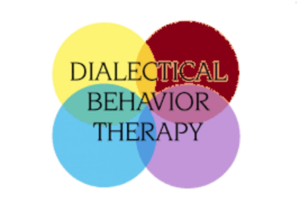OCD is a debilitating disorder that can be difficult to treat. It’s often characterized by intrusive thoughts and obsessive behaviors that can make it hard for someone to lead a normal life. Fortunately, there are treatments available that can help. One of the most successful treatments for OCD is called Dialectical Behavior Therapy (DBT). DBT therapy combines cognitive-behavioral techniques with mindfulness practices to help people learn how to manage their thoughts and emotions more effectively. In this blog post, we will explore what DBT therapy entails, its benefits, and how it works as an effective treatment for OCD.
Contents
What is DBT Therapy?

DBT therapy is a type of psychotherapy that helps people change their behaviors, thoughts, and emotions. It was originally developed to treat people with borderline personality disorder, but it is effective in treating other conditions as well.
DBT therapy focuses on four areas: mindfulness, distress tolerance, interpersonal effectiveness, and emotion regulation. Mindfulness means being aware of and accepting your current thoughts and feelings without judgment. Distress tolerance means learning how to cope with difficult situations without making them worse. Interpersonal effectiveness means being able to communicate effectively and set boundaries in relationships. Emotion regulation means being able to manage your emotions healthily.
If you are considering DBT therapy for OCD, it is important to find a therapist who is trained in this type of treatment.
Who Chooses DBT Therapy?

DBT therapy is for people who are struggling with OCD. It can be used to help people who have difficulty controlling their thoughts, emotions, and behaviors. There are various types of DBT designed to address different types of mental health issues, such as depression, anxiety, eating disorders, substance abuse, and borderline personality disorder.
Sometimes some people don’t fit into any specific diagnosis but still struggle with a range of issues such as low self-worth and distress tolerance. In these cases, DBT can be used to help people build coping skills and improve their quality of life. Many studies show how successful DBT can be in helping people with a variety of mental health issues.
What are the Benefits of DBT Therapy For OCD?
Benefits of DBT therapy for OCD may include:
Improved ability to identify and control triggers
One of the most common benefits of DBT is the ability to identify and label the behaviors that lead to obsessive thoughts. This can help people better understand what triggers their OCD, which can allow them to anticipate or even prevent such triggering circumstances in the future.
Increased self-confidence
DBT helps people become more mindful of their thoughts and feelings, which can help build their self-confidence. It can also reduce anxiety associated with OCD by teaching people how to manage and accept their symptoms.
Improved tolerance for distress
DBT encourages clients to accept and tolerate uncomfortable situations, instead of trying to avoid them or responding with compulsive behaviors. This improved tolerance for distress can be a massive benefit for those with OCD who may be prone to avoiding situations due to fear and anxiety.
Reduced frequency of obsessive thinking and compulsive behaviors
By recognizing triggers, managing stress, tolerating distress, and accepting difficult emotions, DBT has been found to significantly reduce both obsessive thinking and compulsive behavior in those with OCD–often within a short period.
Increased awareness of irrational thoughts and beliefs associated with OCD
Also, DBT helps people become more aware of their irrational thoughts and beliefs that often fuel their OCD symptoms. By recognizing and understanding these distortions, people can learn to challenge them and ultimately reduce their obsessive behaviors.
How Does DBT Therapy For OCD Work?
DBT therapy is a treatment that helps people change their relationships with their thoughts, emotions, and behaviors. The goal of DBT therapy is to help people learn how to better manage their emotions, deal with their thoughts in a more positive way, and make healthier choices when it comes to their behaviors.
- DBT therapy for OCD typically involves weekly sessions with a therapist. During these sessions, the therapist will help the person identify any unhealthy thought patterns or behaviors. The therapist will also teach the person new skills to help them better cope with their OCD symptoms.
- One of the most important aspects of DBT therapy is practice. The therapist will often give the person homework assignments to practice what they have learned in between sessions. It is only through training that the person can start to see lasting changes in their OCD symptoms.
- The working of this therapy is also a combination of cognitive-behavioral and mindfulness techniques. Cognitive-behavioral techniques help an individual to recognize their OCD triggers and learn how to manage them. Mindfulness techniques help the person observe their thoughts, emotions, and behaviors more objectively and without judgment.
Overall, DBT therapy for OCD is a helpful treatment option that can help the person learn new skills and better manage their symptoms to live a more fulfilling life.
Tips For Finding a DBT Therapist For OCD
There are a few things to keep in mind when searching for a DBT therapist for OCD. Some of the things that you should look for include:
1) Make sure that the therapist has specialized training in DBT. This means that they should have attended a specialized training program in Dialectical Behavioral Therapy and be certified in its use.
2) Find out if the therapist has experience working with individuals with OCD. It is important to find someone who understands your issues and can effectively help you manage them.
3) Ask about any additional services offered by the therapist, such as cognitive behavioral therapy (CBT), mindfulness, or group therapy. These additional services may be beneficial to supplement your DBT treatment and provide further support.
4) Make sure that you are comfortable with the therapist’s approach and style of communication. If you feel like something isn’t quite right, don’t hesitate to look for another provider who might better suit your needs.
Limitations of DBT Therapy For OCD

There are a few limitations to DBT therapy for OCD that should be considered before starting treatment. Some of these are:
Time Requirement
One of the most common limitations of DBT therapy for OCD is the amount of time it takes to complete. A typical course of treatment lasts anywhere from 16-24 weeks, requiring weekly commitment and attendance. This can be difficult for individuals with busy schedules or those who live far away from a practitioner.
High Level of Commitment
The success of DBT in treating OCD depends on the client’s dedication and willingness to work hard during each session. Furthermore, Individuals who have difficulty maintaining motivation may struggle with this type of treatment modality.
Costs Associated With Treatment
DBT therapy is usually not covered by insurance, which can make it cost-prohibitive for some individuals. It is important to discuss all costs associated with treatment before starting DBT for OCD to determine if it is a viable option for you or your loved one.
Focus on Behavioral Change
DBT is focused on helping the individual learn new behaviors to replace obsessive-compulsive behavior patterns. While this approach can be beneficial, it does not address any underlying psychological issues that may be causing or contributing to OCD. It is important to consider other forms of therapy, such as psychodynamic or cognitive behavioral therapy, to fully address all aspects of OCD.
Conclusion
Dialectical behavior therapy for OCD provides an effective and structured approach to the treatment of obsessive-compulsive disorder. DBT offers a combination of mindfulness, distress tolerance, emotion regulation, and interpersonal effectiveness techniques that can help reduce symptoms associated with OCD. If you are considering using or learning more about DBT as a form of treatment for your mental health issues related to OCD, it is important to discuss it with your doctor or therapists to make sure that this type of therapy would be right for you.
For more information and guidance, please contact OCDMantra. OCD is a mental health disorder characterized by obsessions and compulsions. If you have any queries regarding OCD treatment, ERP therapy experienced therapists at OCDMantra can help: Book a trial OD therapy session.


